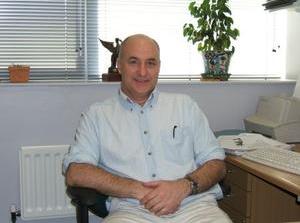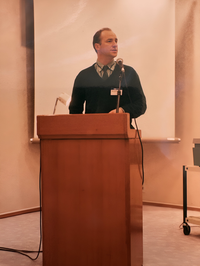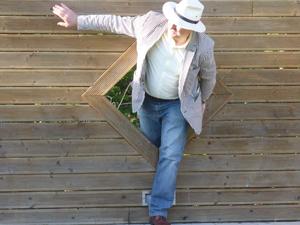Professor Alan McCarthy: a tribute
15 January 2025
The Microbiology Society was saddened to learn of the recent death of Professor Alan McCarthy, a long term member of the Society, having first joined in 1978.

Alan was an active and engaged member for many years and was first elected to what was then the Systematics Group in 1985, the same year that he joined the University of Liverpool, where he remained for the rest of his career. Reflecting Alan’s broad interests in microbiology, during his tenure the Systematics Group organised meetings and symposia on biotechnology, E, coli, computer applications in systematics, determinative bacteriology, the attainments of modern systematics, and the compatibility of bacterial and fungal systematics.
Most recently, while serving as a trustee of the Council for At-Risk Academics (CARA) until last year, Alan acted as a conduit for the Microbiology Society’s support of displaced researchers. As former General Secretary Evelyn Doyle expressed it, "He was passionate about helping scientists in conflict zones.”

Long-time friend, colleague, and collaborator Professor Heather Allison has followed in Alan’s footsteps by taking an active part in one of the Society’s Divisions, the successors to the old Groups, which now organise the scientific programme. She recalls, "I have had the great privilege of working with Alan McCarthy from 1998 until he retired in 2019. He provided me with outstanding mentorship during my progression from Postdoc to Lecturer and beyond. He was an active researcher and contributed to several remits of microbiological research: biogeochemical cycling, microbial ecology, and pathogen detection. He had remarkable insight and judgement in matters concerning science and people. He was first and foremost a family man, which included his wife, their four children, three grandchildren, and the families of his three younger sisters and his sister-in-law. However, he also treated those who came through his lab as extended family members. He supported and actively mentored all of the people coming through his lab, not just in experimental design but also in life, career planning, family, and serving as active members of the scientific community in the UK and beyond. Alan was never too busy to proofread a paper, fellowship application, or grant proposal for anyone who asked him (student, PG student, PDRA or academic colleague). Alan was also a humanitarian and actively supported 2 charities during his life CARA and Shrewsbury House Youth Club.”

Professor Mike Larkin of Queen’s University Belfast said, "I had known Alan for many years as a fellow microbiologist who will be missed by many who knew him. As an external examiner in Liverpool for four years, I saw his care and professionalism with students. That he found so much time to support CARA was an example to many. It's such a great loss that he is gone.”
The Microbiology wing of the Biosciences Building at the University of Liverpool became a quieter place upon his retirement. He was always up for a good chat and shared a laugh with all he met. In Heather Allison’s words, "The UK Microbiology community will be quieter, but we will continue to try and carry on his legacy of good science, generosity, humour, and wisdom.”
